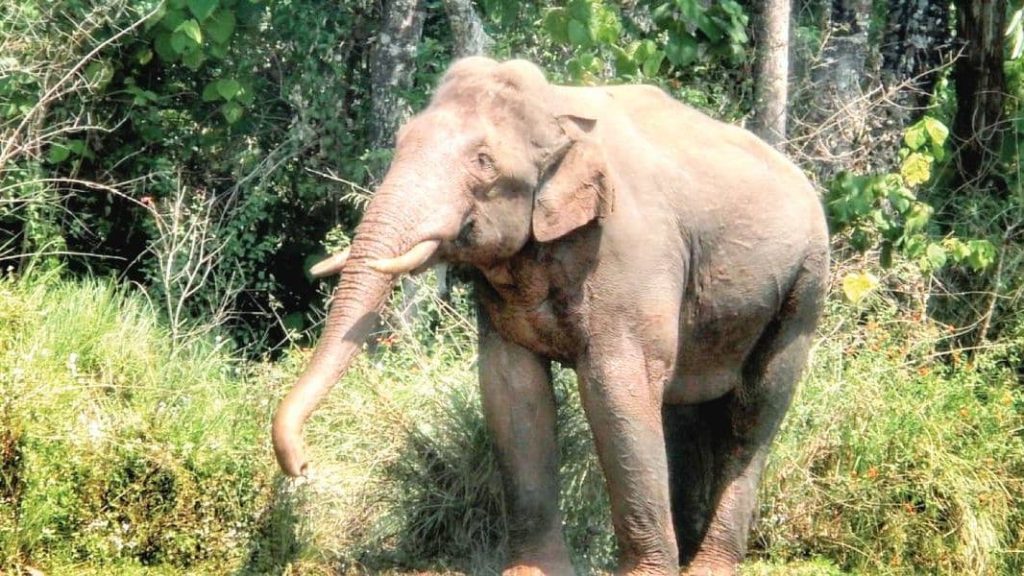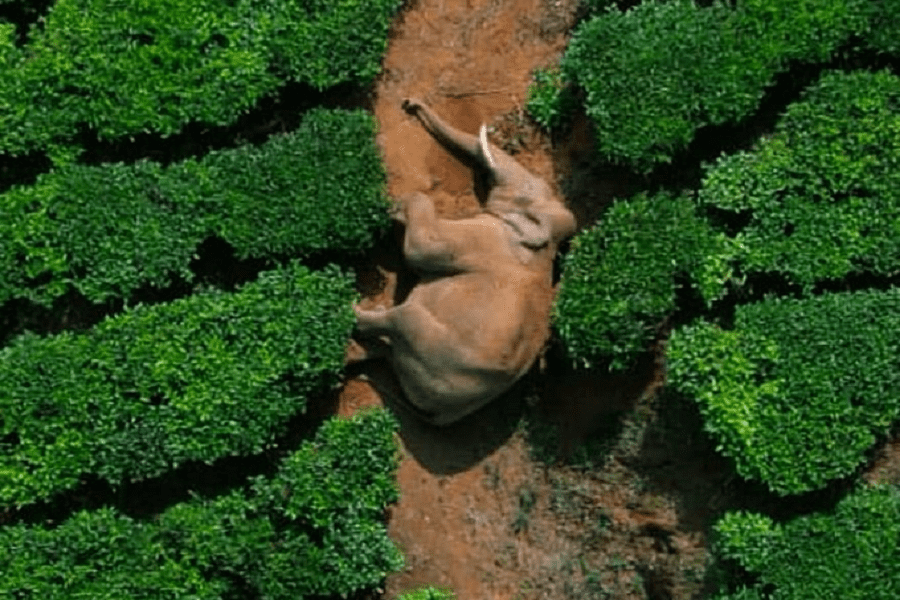Arikomban, a wild tusker that created havoc in the Chinnakanal area of Idukki district in Kerala is set to be translocated to Parambikulam over 150 km away.
The order has been given by the top court in the state following an appeal.
However, environmentalists and a few senior rank IFS officers are not sure if it would solve the problem at hand.
THE CONFLICT
Insecurity and fear looms large in Chinnakanal valley, which is a converted residential town with several resorts popping through out what actually is an elephant corridor.
In Chinnakanal, almost every other person has a story of a near escape from a rampaging jumbo.
Thirty-six-year-old Arikomban has created many a mayhem-like situation over the recent past.
Finally, leading to the high court order that Arikomban will have to be translocated to Parambikulam National Park.
And as was expected, protests have already started in Parambikulam.
Arikomban, who got his name from his love for rice (‘Ari’ means rice in Malayalam and ‘komban’ refers to tusker), had been roaming around in Chinnakanal area with his family member for years now, raiding and destroying houses to get his favourite ‘ari’.
If the conservationists and high-ranked forest officers in the state, are to be believed the translocation may not be the solution people are looking for.
They say that catching Arikomban and translocating is not going to help, instead, they should relocate the human population out of Chinnakanal and declare it a sanctuary.
The Arikomban issue, which over the past few months have led to numerous public debate and subsequent judicial intervention highlights the human-animal conflict in the hill district.
Speaking with Indian Masterminds, Principal Chief Conservators of Forests (PCCF) and Special Officer of Rebuild Kerala Development Programme, Ms. Prakriti Srivastava said, “We will keep our fingers crossed that the order will be a real solution.”
In Chinnakanal, near Munnar, man-animal conflicts have increased since 2002 and led to many deaths as houses and plantations have sprung up here.
“Our sustainable development model which focuses on conserving wildlife, has unfortunately failed here,” rues Ms. Srivastava.

THE ROOT CAUSE
It all started in 2002-03 when the Government decided that land in Chinnakanal Valley will be given to landless tribals. The issue of assignment of land (276 ha) in Chinnakanal to 559 families was as per a cabinet decision.
Incidentally, Ms Prakriti Srivastava was then posted as DFO Munnar and she objected to the decision.
She said, “When the order came, I objected that it should not be given because it is an elephant territory/corridor. I told them that problems would arise later.”
She explains that the Chinnakanal area has been historically called an unreserved area, which means that it was supposed to be a forest area that needed to be notified.
Read Also: Learn How UP PCS Topper Divya Sikarwar Cracked The Exam
Instead of notifying it as a reserved forest, the government allotted this elephant territory to the people. Within a year of people starting to live in the forested area, the problem of the man-animal conflict started.
The Arikomban issue is as recent as 2016.
The reason behind this is very simple, because, it was their traditional path. And it is in the genes of gentle giants that they never forget their traditional path and home. It is called ‘homing instinct’. Elephant memories span decades and are passed down to future generations, the officer explains. “It’s like they have some kind of GPS, which always guide them to their traditional path.”
Ms. Prakriti said, “It is by default in their genes. The herd takes the same route and travel generation after generation on it and that is what is called the elephant corridor.
So now when you are obstructing those paths, then there are bound to be conflicts. This is what all the policymakers have to realize that these are traditional paths, so we should keep them unblocked. So that, elephants can move without any obstructions.”
The officer points out: “If it is in their genes that they do not change their traditional path and we take that away then whose fault is it? That is when these elephants run amok and we bear the loss.”
She fears Arikomban might try to reach Chinnakanal again within six months of his translocation. She gave the example of Karnataka’s Hassan, where such kind of cases has already happened.
There are over 100 elephant corridors in India, we should not encroach upon these, she added. Even, a report of the committee of experts appointed by the Kerala High Court on the Arikomban issue stated that traditional settlements of the Muthuvan tribal community have coexisted with the wild animals in Chinnakkanal but subsequent unscientific resettlements in the area have given rise to human-animal conflict.

NOT ALL RIGHT
IAS officer Bharat Bhushan, who was Forest Secretary of Kerala in 2002, said, “What is playing out in Idukki is indicative of the tragedy of forest conservation in Kerala. Elephants follow the same ‘corridors’ for centuries and illegal encroachments are threatening these.”
“I hope the High Court will force a rethink of the whole issue uninfluenced by the lynch mob and their powerful media supporters who want to cage every animal in our forest.”
There is an Anayirangal Dam in Chinnakanal. Anayirangal means “elephants coming down”. Elephants come down from the deep forests of Munnar hills, drink water, and go back. This is an identified traditional path.
Sadly, in a bid to secure more human homes, we have started snatching away the homes of other living beings. Hopefully, as we celebrate ‘The Elephant Whisperers’ much coveted ‘Oscar Award’ for Best Documentary Short Film, we will also start showing more compassion to these sensitive and highly social animals.
Led by a matriarch, who is a repository of information over years, about the best spot to feed and assured water availability in different seasons they roam the earth only in a few regions. India has marked 30 years of Project Elephant and is home to around 60% Asian elephants with 33 Elephant Reserves. But much remains to be secured for these gentle giants.



































